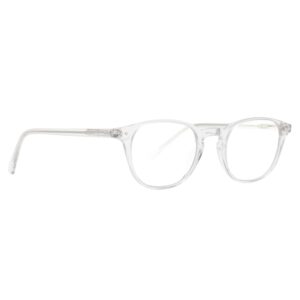
See the Benefits: How Omega-3 Enhances Your Vision
When it comes to maintaining sharp vision and ensuring our eyes are in tip-top shape, omega-3 fatty acids are like the superheroes of eye health. These powerful nutrients, found abundantly in fish oil, are not just good for your heart; they’re essential for keeping your vision clear and your eyes healthy. Let’s explore how omega-3 fish oil can be a game-changer for your eyesight.
Article-at-a-Glance
-
Discover the eye-opening benefits of omega-3 fatty acids for vision health.
-
Learn about the diverse sources of omega-3, from ocean depths to plant-based alternatives.
-
Understand omega-3’s pivotal role in visual development and retinal function.
-
Find out how omega-3 can help combat dry eye syndrome and protect against eye diseases.
-
Gain practical tips on incorporating omega-3 into your diet for long-term eye health.
The Omega-3 Effect: A Clearer Look at Eye Health
Omega-3 fatty acids, particularly EPA and DHA, are vital for eye health. These fats are building blocks of the retina, the part of your eye responsible for vision clarity. A diet rich in omega-3s can help maintain the retina’s integrity and prevent age-related vision decline. But the benefits don’t stop there; omega-3s also play a role in reducing inflammation, which can help fend off eye conditions linked to inflammation.
Omega-3 Sources: Fish and Beyond

“Fresh flax seeds | 🇩🇪Professional …” from www.flickr.com and used with no modifications.
Fish is the most well-known source of omega-3 fatty acids, with salmon, mackerel, and sardines leading the pack. However, for those who don’t fancy fish or follow a plant-based diet, there are other ways to get your omega-3 fix. Flaxseeds, chia seeds, and walnuts are excellent plant-based sources, while algae-based supplements offer a vegetarian-friendly alternative that’s just as beneficial for your eyes.
Zooming In: Omega-3’s Role in Visual Development
From the moment we are born, omega-3 fatty acids are crucial for visual development. DHA, a type of omega-3, is a primary structural component of the brain and retina, making it essential for infants to receive an adequate supply for proper eye development. As we grow, omega-3 continues to support eye health by aiding in the maintenance of cell membranes and providing anti-inflammatory benefits.
The Science of Sight: Omega-3’s Contribution to Retinal Health
The retina is where the magic of sight happens, converting light into the images we see. Omega-3 fatty acids, especially DHA, are concentrated in the retina, supporting its function and health. Adequate intake of omega-3s helps ensure that the photoreceptor cells in the retina can operate effectively, allowing for optimal vision. It’s like giving your eyes the nourishment they need to capture the world in high definition.
From Infancy to Adolescence: Omega-3 in Childhood Eye Care
Good vision is crucial for a child’s physical development, success in school, and overall well-being. Omega-3 fatty acids play a significant role in this developmental stage. Ensuring that children get enough omega-3s supports not only their brain health but also the proper development of their vision. It’s important for pregnant mothers and young children to include omega-3s in their diets to help set the foundation for lifelong eye health.
Blink of Relief: Omega-3 and Dry Eye Syndrome
Dry eye syndrome is a common condition that can lead to discomfort, visual disturbance, and even scarring of the cornea if left untreated. It’s characterized by a lack of sufficient lubrication on the surface of the eye. The good news? Omega-3 fatty acids have been shown to support tear production and offer a soothing effect for those with dry eyes. Let’s dive into how omega-3 can bring comfort to your day-to-day vision.
Understanding Dry Eyes: Causes and Symptoms
Dry eyes can result from various factors, including age, environmental conditions, and screen time. Symptoms often include a scratchy sensation, redness, and a burning feeling in the eyes. In some cases, dry eyes can even lead to more serious vision problems. However, by understanding the causes and symptoms, we can take proactive steps to manage this condition effectively.
Omega-3’s Moisturizing Mechanism: Combatting Dryness
Omega-3 fatty acids help maintain the eye’s surface’s lipid layer, which locks in moisture. This mechanism is crucial for preventing the evaporation of tears, the primary cause of dry eye symptoms. By increasing your omega-3 intake, you’re directly supporting the health of your tear film and providing your eyes with the hydration they need to stay comfortable and clear.
Finding Relief: Incorporating Omega-3 into Your Diet
Adding omega-3-rich foods to your diet is a simple yet effective way to combat dry eyes. Fatty fish, such as salmon, are excellent sources, but if you’re not a fan of seafood, consider flaxseed oil or chia seeds. For those who find it challenging to consume enough omega-3s through diet alone, high-quality fish oil supplements can be a convenient alternative.
Shielding Your Sight: Omega-3 Against Eye Diseases
Omega-3 fatty acids are not only good for preventing dry eyes but also for protecting against more serious eye diseases. Regular consumption of omega-3s has been linked to a reduced risk of age-related macular degeneration (AMD), one of the leading causes of vision loss. By incorporating omega-3s into your diet, you’re taking a proactive step in safeguarding your vision for the future.
Guarding Against Macular Degeneration with Omega-3
Macular degeneration is a thief of vision, stealthily robbing people of their central sight. But omega-3 fatty acids are standing guard. High levels of omega-3s, particularly DHA, are found in the macula—an area critical for clear, detailed vision. Research suggests that a diet rich in omega-3s can help protect this vital part of the eye, potentially slowing the progression of macular degeneration and helping you keep your central vision sharp and focused.
Reducing Risks: Omega-3’s Protective Properties
Omega-3 fatty acids aren’t just a defensive shield for the macula; they’re a proactive force against a range of eye conditions. Their anti-inflammatory and neuroprotective properties can help reduce the risk of glaucoma and diabetic retinopathy, conditions that can lead to vision impairment or loss. By fighting inflammation and protecting neural cells within the eye, omega-3s contribute to long-term visual health.
Diving Deeper: The Role of Omega-3 in Overall Eye Maintenance
Omega-3 fatty acids play a multifaceted role in eye health, going beyond disease prevention. These essential fats support the overall maintenance of eye health, promoting good circulation to the ocular tissues, reducing oxidative stress, and aiding in the repair of cells. They’re the unsung heroes working behind the scenes to ensure our eyes function optimally day in and day out.
The Bigger Picture: Omega-3 as Part of a Balanced Eye Diet
While omega-3s are crucial, they’re just one piece of the puzzle. A balanced diet for eye health includes a variety of nutrients—vitamins C and E, zinc, lutein, and zeaxanthin. These work in concert with omega-3s to keep your vision sharp. Think of it like a team where each player has a unique role, but together, they make a winning combination for your eye health.
Clear Vision Ahead: The Long-Term Benefits of Omega-3
-
Supports retinal health and function
-
Reduces the risk of chronic eye diseases
-
Helps maintain proper eye pressure
-
Improves tear quality, reducing dry eye symptoms
-
Contributes to better night vision and glare tolerance
Consistently including omega-3s in your diet can lead to noticeable improvements in eye comfort and visual acuity. Over time, the benefits accumulate, contributing to a lifetime of healthy vision.
Choosing Your Omega-3: Sources and Supplements

“Omega 3 Images | Free Photos, PNG …” from www.rawpixel.com and used with no modifications.
When it comes to getting your omega-3s, you have options. Fatty fish is the go-to source, but if you’re vegetarian or simply not a fan of fish, you can choose from a variety of plant-based sources or supplements. The key is to find a source that fits your lifestyle and dietary preferences, ensuring you can maintain a steady intake for consistent eye health benefits.
Best Bites for Your Eyes: Foods Rich in Omega-3s

“Salmon fillets | PickPik” from www.pickpik.com and used with no modifications.
-
Salmon: A powerhouse of DHA and EPA
-
Walnuts: A plant-based source perfect for snacking
-
Chia seeds: Easy to add to smoothies and yogurt
-
Flaxseeds: Great for baking or as a salad topping
-
Algae oil: A vegetarian option with DHA and EPA
These foods are not only delicious but also come packed with the omega-3s your eyes crave. Incorporating them into your meals is a tasty way to support your vision.
Supplementing Your Sight: Finding the Right Omega-3 Product
If you’re considering a supplement, look for products with high levels of EPA and DHA, the types of omega-3 best utilized by the body. Check for third-party testing to ensure purity and potency. Remember, supplements should complement your diet, not replace it, so continue to eat a variety of nutrient-rich foods for the best eye health.
Best Bites for Your Eyes: Foods Rich in Omega-3
Feeding your eyes the right nutrients can lead to clearer vision and healthier eyes. Omega-3 fatty acids are one of those key nutrients, and they’re found in a variety of foods. Let’s look at some of the top choices that can help keep your vision sharp.
-
Salmon: Known for its high content of omega-3s, salmon is a delicious way to support eye health.
-
Sardines: These small fish are big on omega-3 and make a great addition to salads and pastas.
-
Flaxseeds: Sprinkle these on your breakfast cereal or yogurt for a crunchy, omega-3-packed start to your day.
-
Walnuts: Perfect for snacking, walnuts are a convenient source of plant-based omega-3s.
-
Chia Seeds: Add them to smoothies or puddings for a nutrient boost without changing the flavor.
-
Algae-based supplements: For those who prefer plant-based options, algae supplements are an excellent source of DHA.
Including these foods in your diet not only contributes to better eye health but also supports overall wellness.
Supplementing Your Sight: Finding the Right Omega-3 Product
If you’re not getting enough omega-3s from your diet, supplements can be a great way to fill the gap. But with so many options on the market, how do you choose the right one?
-
Look for supplements that list high levels of EPA and DHA, as these are the most beneficial for eye health.
-
Choose a reputable brand that uses sustainably sourced fish oil or plant-based oils.
-
Check for third-party testing, which can provide assurance about the purity and potency of the product.
-
Consider the form of the supplement—whether you prefer soft gels, liquids, or chewables—based on your personal preference.
-
Consult with your healthcare provider, especially if you have any existing health conditions or take other medications.
Remember, while supplements can support your diet, they’re not a substitute for a varied and balanced diet rich in omega-3s.
FAQ
Let’s address some common questions about omega-3 fatty acids and their impact on eye health.
How much omega-3 should I take for optimal eye health?
The amount of omega-3 fatty acids you need can vary based on your age, sex, and health status. Generally, adults should aim for at least 500 mg of EPA and DHA per day. If you have specific eye conditions, your healthcare provider may recommend a higher intake. Always consult with a professional before starting any new supplement regimen.
Can omega-3 fish oil cure eye diseases?
While omega-3 fatty acids are beneficial for eye health, they are not a cure for eye diseases. They can, however, play a role in preventing certain conditions and may support overall eye health when used in conjunction with other treatments. It’s important to follow your eye doctor’s advice for any eye condition.
How does omega-3 improve vision clarity?
Omega-3 fatty acids, particularly DHA, are a major structural component of the retina, where they help maintain cell membrane integrity and fluidity, which is crucial for the transmission of visual signals from the eye to the brain. By supporting retinal health and reducing inflammation, omega-3s can contribute to clearer, sharper vision.
Are there vegan alternatives to fish oil for omega-3?

“Close up photo of walnuts …” from www.pickpik.com and used with no modifications.
Yes, absolutely! For those following a vegan lifestyle or who are allergic to fish, there are several plant-based sources of omega-3s. Algae oil is a fantastic vegan alternative that contains both EPA and DHA, the active forms of omega-3 fatty acids that are most beneficial for eye health. Flaxseeds, chia seeds, hemp seeds, and walnuts are rich in ALA, another type of omega-3 that the body can partially convert to EPA and DHA. Including these foods in your diet or choosing high-quality vegan supplements can ensure you’re not missing out on these vital nutrients.
How soon can I expect to see improvements in my vision with omega-3 supplements?
The timeline for noticing improvements in vision after starting omega-3 supplements can vary from person to person. Some may experience benefits such as reduced dry eye symptoms within a few weeks, while others might take a few months to notice changes in visual clarity. It’s important to remember that omega-3s work as a part of a long-term strategy for eye health, and consistent intake is key. Additionally, the effects of omega-3s will be more pronounced when combined with a balanced diet and regular eye check-ups.
In conclusion, omega-3 fish oil is a powerful ally in the quest for better eye health and vision clarity. From supporting the development of sharp vision in children to protecting against age-related eye diseases and providing relief from dry eye symptoms, the benefits of omega-3s are clear and far-reaching. Whether you choose to consume more omega-3-rich foods or take supplements, what matters most is that you make these nutrients a regular part of your eye care routine.
Remember, taking care of your eyes is an investment in your overall quality of life. By prioritizing your intake of omega-3s, you’re not only enhancing your vision today but also setting the stage for continued eye health in the years to come. So, make a commitment to your eyes—your windows to the world—and ensure they remain clear, comfortable, and healthy for all the sights yet to be seen.


